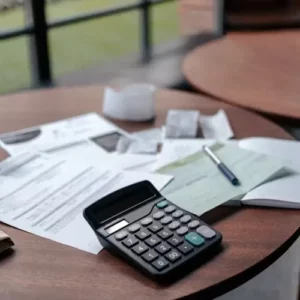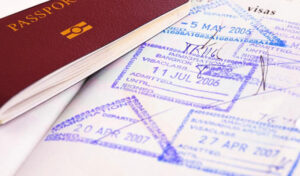Translation and Legalization in Thailand. In Thailand, translation and legalization are procedural mechanisms that transform foreign or non-Thai-language documents into legally recognized instruments for administrative, judicial, commercial, or immigration purposes. These processes are essential for both Thai citizens using documents abroad and foreign nationals using documents within Thailand.
The Thai legal system requires documents to be in Thai language and legally verified before they can be used in court proceedings, civil registration, corporate transactions, visa applications, and other government services. This article offers an in-depth legal and procedural analysis of translation and legalization in Thailand, emphasizing regulatory authority, institutional roles, accepted formats, and the interplay between international law and domestic administrative procedures.
1. Legal Basis and Institutional Jurisdiction
1.1 Governing Legal Framework
Thailand does not have a standalone law dedicated exclusively to translation and legalization. Instead, the procedures are regulated under various laws and regulations, including:
-
Civil Procedure Code (for use of documents in court)
-
Immigration Act B.E. 2522 (1979) (for residency and visa-related applications)
-
Ministerial regulations from the Ministry of Foreign Affairs (MOFA) concerning document legalization
-
Internal protocols from Thai embassies and consulates, courts, and administrative agencies
1.2 Competent Authorities
-
Ministry of Foreign Affairs – Department of Consular Affairs
-
Royal Thai Embassies and Consulates Abroad
-
Thai Immigration Bureau
-
Local Land Offices, District Offices (Amphur), and Provincial Courts
-
Embassies of foreign governments located in Thailand
2. Core Concepts: What Are Translation and Legalization?
2.1 Translation
Refers to the rendering of a document from its original language into Thai or from Thai into another language, depending on the intended use.
-
Translations must be accurate and literal.
-
For legal documents, precision in terminology is essential.
-
Some government offices require translation by MOFA-recognized translators.
2.2 Legalization
Legalization is the official confirmation of the authenticity of a document, including its translation, so that it can be accepted by a public authority in another jurisdiction.
Legalization may involve:
-
Certifying the authenticity of a foreign document
-
Certifying the accuracy of the Thai translation
-
Stamping the document for official recognition
🔺 Thailand is not a member of the Hague Apostille Convention. As a result, apostilles are not accepted, and full consular legalization is required.
3. When and Why Legalization Is Required in Thailand
3.1 Common Scenarios Where Legalization is Mandated
-
Marriage registration between a Thai and a foreign national
-
Property purchases involving foreign nationals
-
Visa applications, including work permits and permanent residency
-
Court proceedings using foreign-language evidence
-
Corporate incorporation using foreign shareholder documents
-
Employment contract verification for foreign workers
-
International student enrollments
3.2 Consequences of Non-Compliance
-
Rejection of documents by immigration, court, or ministry
-
Delay in proceedings or approvals
-
Legal invalidity of improperly translated or unauthorized documents
4. Step-by-Step Process for Using Foreign Documents in Thailand
Step 1: Authenticate the Document in the Country of Origin
-
The foreign document must be authenticated by a competent authority in the issuing country (e.g., Ministry of Foreign Affairs, Department of State).
-
In some jurisdictions, this may involve notarization first, then official government authentication.
Step 2: Translate the Document into Thai
-
Translation must be complete, literal, and legally consistent.
-
Translation must include:
-
Names and titles transliterated according to Thai government standards
-
Dates converted to Buddhist Era (BE) format if required
-
Step 3: Legalization by the Thai Ministry of Foreign Affairs (MOFA)
-
Both the original document (with its authentication) and the Thai translation must be submitted to MOFA for legalization.
-
MOFA verifies:
-
The foreign authority’s seal and signature
-
The accuracy of the translation
-
-
Once verified, a MOFA legalization stamp is applied
5. Legalization of Thai Documents for Use Abroad
If a Thai document is to be used outside Thailand:
-
Translate the document into the foreign country’s official language (if needed)
-
Legalize the original Thai document at MOFA
-
Submit to the embassy or consulate of the destination country in Thailand for final authentication
This process is typically required for:
-
Visa or immigration petitions
-
Marriage abroad
-
Business registration overseas
-
University enrollment in foreign institutions
6. Certified Translation Requirements
Thai law does not mandate a single certification body for translators, but some authorities require:
-
Translators certified by MOFA
-
Translation agencies recognized by the Thai Courts or government departments
-
Notarization of translations for court use
Some embassies in Thailand maintain lists of approved translators, and in judicial contexts, the court may accept a court-registered interpreter.
7. MOFA Legalization Details
7.1 Locations
-
Chaeng Watthana Government Complex (Bangkok) – Full-service legalization
-
Consular Office on Sathorn Road – Limited services (appointment recommended)
7.2 Processing Time
-
Standard service: 3 working days
-
Express service: 1 working day (subject to availability)
7.3 Fees
-
THB 200 per document (standard)
-
THB 400 per document (express)
7.4 Required Documents
-
Original document (authenticated)
-
Thai translation
-
Copy of applicant’s passport or ID
-
Legalization request form
8. Special Considerations and Common Mistakes
8.1 Apostille Confusion
Many applicants mistakenly believe apostilled documents are valid in Thailand. Apostilles are not accepted.
8.2 Incorrect or Poor Translation
-
Translations that are incomplete, inconsistent, or overly interpretive are often rejected
-
The use of unfamiliar legal terminology can also cause rejection
8.3 Invalid Authentication
-
Documents not properly authenticated by foreign authorities before translation may be deemed invalid by MOFA
-
Embassy certification alone may not be sufficient without MOFA endorsement
9. Notarization vs. Legalization in Thailand
-
Notarization refers to verification of signatures or declarations, usually for affidavits or powers of attorney. In Thailand, this function is performed by Notarial Services Attorneys, who must be licensed Thai lawyers registered with the Lawyers Council of Thailand.
-
Legalization, on the other hand, is a governmental verification of document authenticity and translation accuracy.
10. Use in Thai Courts and Administrative Proceedings
Thai courts only accept foreign documents that have been:
-
Translated into Thai
-
Certified or legalized
-
Submitted with appropriate witness or evidentiary support
Foreign contracts, business licenses, or marriage certificates submitted to court must be properly legalized and translated. Without this, the court may refuse to admit the document as evidence.
11. Cross-Border Implications
For foreigners:
-
A foreign divorce decree, marriage certificate, or power of attorney must undergo full legalization before being accepted by Thai civil registrars or courts.
For Thais:
-
A Thai birth certificate used in a foreign country must be translated, legalized by MOFA, and authenticated by the foreign embassy.
For businesses:
-
Foreign company documents used to open a branch or bank account in Thailand must be authenticated by the foreign government, then translated and legalized.
Conclusion
Translation and legalization in Thailand are legally significant procedures that ensure foreign and Thai documents are recognized by state institutions, courts, and regulatory authorities. These processes are governed by both formal legal standards and administrative expectations, and failure to comply can result in invalidity of documents, delays, or rejection.
Whether for marriage, litigation, property acquisition, immigration, or commercial transactions, accurate translation and proper legalization are mandatory gateways to legal recognition in Thailand’s administrative and judicial systems.
Related posts:










